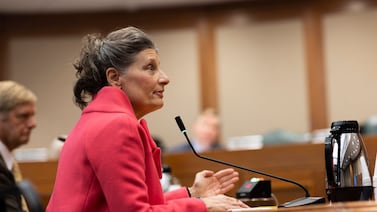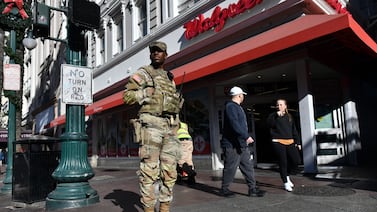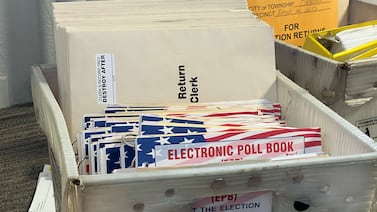Votebeat is a nonprofit news organization reporting on voting access and election administration across the U.S. Sign up for Votebeat Michigan’s free newsletter here.
A Michigan man pleaded guilty on Wednesday to a felony charge that he voted twice during last year’s August primary election.
Prosecutors said Frank Prezzato, 68, of St. Clair Shores, voted using his absentee ballot and then showed up at his polling place and voted there as well.
A news release from Attorney General Dana Nessel said Prezzato “acknowledged that he acted recklessly.” As part of a plea agreement, he will serve six months of delayed probation. After that, the charges can be dismissed with prejudice — closing the case permanently — if Prezzato meets the conditions of his probation. His formal sentencing is set for the end of October.
“Voting twice undermines our democratic process,” Nessel said. “My office will continue to prosecute those who violate our voting laws to ensure Michigan voters have confidence in the integrity of our elections.”
In total, Nessel’s office pursued charges against seven people in the scandal — four voters and three poll workers. Five of those people, including the poll workers, have since had charges against them dismissed, including one man whose attorney argued he had been entrapped by the government.
The other remaining defendant, Stacey Kramer, could have a jury trial as soon as this month, according to court records.
In all four cases of alleged double-voting, officials say both votes were counted. Still, double voting is extremely rare in Michigan and across the country.
In Michigan, several safeguards are in place to prevent double voting before it occurs. The most significant is the use of e-pollbooks — computers that poll workers use to check voters in at polling places. These systems flag when a voter has already submitted an absentee ballot, so they don’t get a second one. If a voter who shows up to vote at a polling place has an outstanding absentee ballot that has not yet been returned, the e-pollbooks prompt election workers to arrange to cancel it before issuing an in-person ballot.
In the rare instance that it does happen, double voting is usually a matter of timing — the in-person vote is cast before the absentee ballot is received and input by election officials. In that case, officials are notified while processing the absentee ballot that an in-person ballot was cast. In the St. Clair Shores cases, prosecutors alleged that the appropriate warnings did come up, but that poll workers overrode them and issued in-person ballots anyway, allowing two ballots to be cast by the same person.
Macomb County Prosecutor Pete Lucido initially declined to press charges against any of the people involved in the St. Clair Shores case. He argued that it appeared no one had intended to commit a crime.
But two months later, Nessel filed charges not only against those accused of casting two ballots but also against the poll workers who allegedly assisted them. At the time, the move was viewed as part of a broader effort by Nessel and Secretary of State Jocelyn Benson to underscore the security of Michigan’s elections ahead of the 2024 presidential race.
Hayley Harding is a reporter for Votebeat based in Michigan. Contact Hayley at hharding@votebeat.org.





